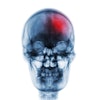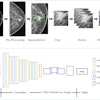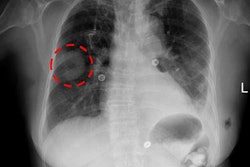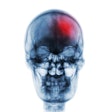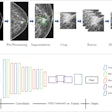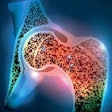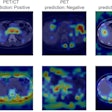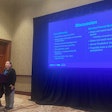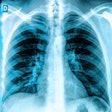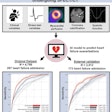In the study, researchers led by presenter Dr. Masahiro Yanagawa, PhD, of Osaka University compared the performance of a deep-learning algorithm with the performance of three radiologists of varying levels of experience for the radiological prediction of pathological invasiveness in lung adenocarcinoma. The 3D convolutional neural network was developed in collaboration with the university's department of technology, Yanagawa said.
Even though only a small dataset of CT images was available for training, the deep-learning algorithm produced an accuracy rate that was almost equivalent to that of the radiologists, Yanagawa said. In addition, the area under the curve (AUC) for the algorithm was almost the same as the AUC for the most experienced radiologist, who, in turn, had a significantly higher AUC than the radiologist with the least amount of experience.
"In the future, [the] deep-learning system may be able to predict the pathological invasiveness in lung adenocarcinoma from CT images, resulting in differentiating adenocarcinoma in situ, minimally invasive adenocarcinoma, and invasive adenocarcinoma," Yanagawa told AuntMinnie.com.
Get all of the details by attending this Sunday morning presentation.
